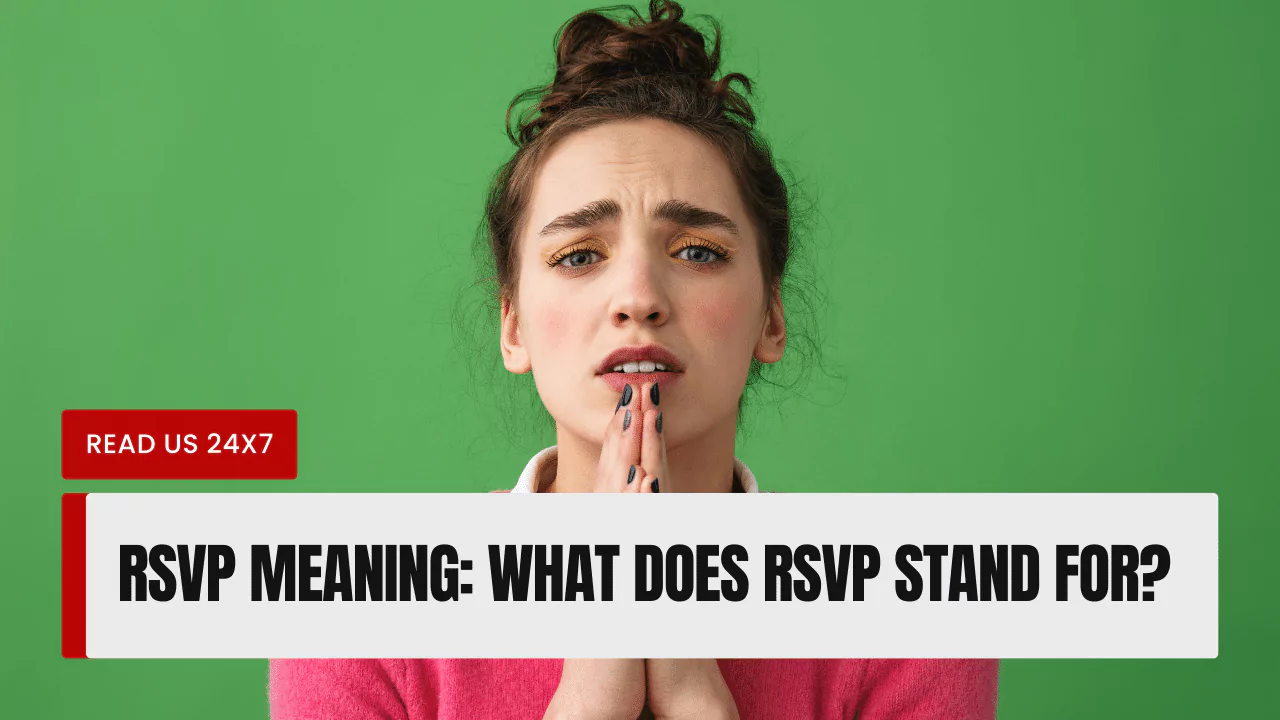RSVP stands for Répondez s’il vous plaît, which is French for Please reply. It is a polite way of asking the recipients of an invitation to confirm their attendance or decline the invite. RSVP is commonly used for events such as weddings, parties, conferences, and other social gatherings.
What Does RSVP Mean on Invitations?
RSVP as an Abbreviation
RSVP is an abbreviation that originated from the French phrase Répondez s’il vous plaît. It is pronounced as /ɑːr ɛs viː piː/ in English, or /ɛʁ ɛs ve pe/ in French. Sometimes, the abbreviation is written as R.S.V.P. or rsvp, but the meaning is the same.
History of RSVP
The use of RSVP dates back to the 18th century, when the French aristocracy adopted the etiquette of sending and responding to invitations for formal events. The practice spread to other European countries and eventually to the rest of the world. Today, RSVP is widely used in both formal and informal contexts, especially in English-speaking countries.
Understanding RSVP in Different Contexts
Formal Invitations
Formal invitations, such as those for weddings, usually include a card or a note with the RSVP request and a deadline for the response. The recipients are expected to reply by mail, phone, or email, indicating whether they will attend or not, and how many guests they will bring. Some invitations may also ask for additional information, such as dietary preferences, meal choices, or seating arrangements.
Casual Invites
Casual invites, such as those for birthday parties, may not include a separate RSVP card or note, but rather a simple line at the end of the invitation, such as “Please RSVP by June 1st” or “RSVP to Jane at 555-1234”. The recipients can reply by any convenient means, such as text, call, or social media. The host may not specify a deadline, but it is courteous to reply as soon as possible, preferably within a week.
Digital RSVPs
Digital RSVPs are becoming more popular, especially for events that do not require formal invitations, such as reunions, fundraisers, or workshops. The host may send an email, a link, or an online form to the invitees, asking them to RSVP online. The recipients can simply click a button or fill out a form to indicate their response. The host can easily track the responses and send reminders or updates if needed.
Etiquette and Tips for RSVPs
How to Respond to an RSVP?
The most important rule of RSVP etiquette is to respond promptly and politely. If the invitation includes a deadline, make sure to reply before that date. If not, reply as soon as you can, ideally within a week. If you are unsure whether you can attend or not, let the host know that you are checking your availability and will get back to them soon. Do not wait until the last minute or show up unannounced.
When responding to an RSVP, be clear and concise. State your name, the name of the event, and whether you will attend or not. If you are bringing a guest or a plus one, mention their name and relationship to you. If the invitation asks for additional information, such as meal preferences or allergies, provide that as well. If you have any questions or special requests, ask them politely and respectfully.
When to Send Out an RSVP?
The timing of sending out an RSVP depends on the type and size of the event. For formal events, such as weddings, it is customary to send out the invitations at least six to eight weeks before the event date, and to request the RSVPs at least three to four weeks before the event date. This allows the host to finalize the guest list, the catering, the seating, and other arrangements.
For casual events, such as parties, the invitations can be sent out two to four weeks before the event date, and the RSVPs can be requested one to two weeks before the event date. This gives the host enough time to prepare the venue, the food, the entertainment, and other details.
For digital events, such as webinars, the invitations can be sent out one to two weeks before the event date, and the RSVPs can be requested a few days before the event date. This ensures that the invitees have the necessary information and access to the online platform.
Importance of RSVPs
RSVPs are important for both the host and the guests of an event. For the host, RSVPs help to plan and organize the event efficiently and effectively. They help to estimate the number of attendees, the amount of food and drinks, the space and equipment needed, and the budget and expenses. They also help to avoid overbooking, underbooking, or wasting resources.
For the guests, RSVPs show respect and appreciation to the host and the event. They help to secure a spot, a seat, a meal, and a favor. They also help to avoid confusion, disappointment, or embarrassment. By RSVPing, the guests demonstrate their interest, enthusiasm, and gratitude for the invitation.


